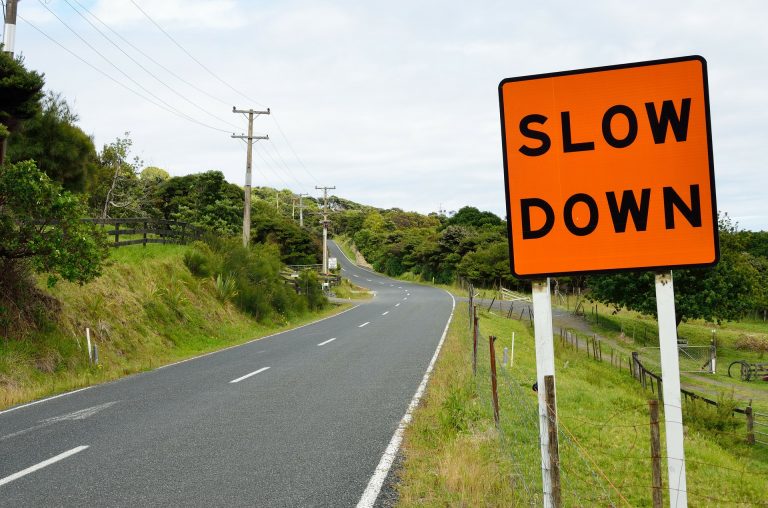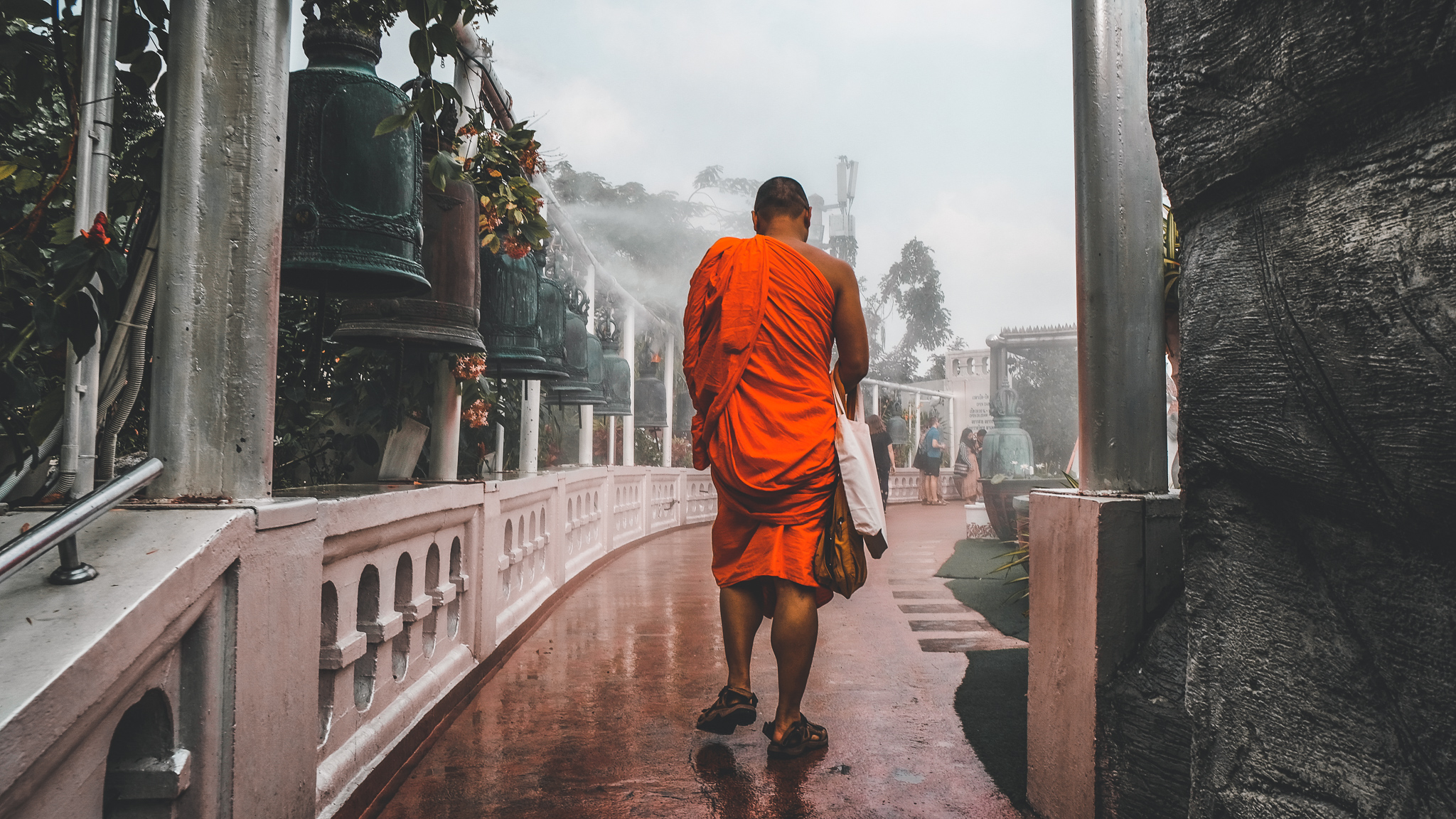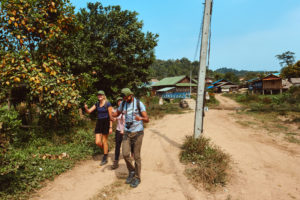Understanding Suffering
Buddha Sak, the head monk of Thailand’s International Meditation Center, would say that during meditation, one’s mind will wander as if it is cycling through an old filing cabinet of buried thoughts. He was not wrong. During my experience at a week-long meditation retreat, I felt as though I experienced every emotion and thought known to mankind. Of all the thoughts that I came across in 7 days, by far the most common one was that of suffering.
As a generally positive person, I hated thinking about negative thoughts like suffering. It was frustrating to be at a peaceful meditation retreat feeling anything but peace. Luckily, this all changed for me as I went further into my retreat. Teachings from Buddha Sak and context from my mediation taught me a lot about suffering. I gained a great deal of insight into the human emotion of pain, how to avoid fearing it, and how to face it when it does arrive.
Fear is a Multiplier
On the third day of my retreat, I tried to sit peacefully and focus on my breath; I couldn’t, I struggled to keep my focus. My mind was wandering more than it ever had, and this time it couldn’t stop thinking about pain. “What will it be like if I can’t find a job?” “What if something bad is happening at home right now?” “How will I handle myself if (insert any name) dies?” I couldn’t stop imagining future potential tragedies that could ruin my life.
The next morning, during the retreat’s daily dharma talk, Buddha Sak coincidently happened to discuss the topic of suffering. “Suffering is largely self-generated.” he said. I initially dismissed his comments thinking that, as a monk, he was ignorant of the pain of other people’s lives. He continued the talk and explained how most humans bring pain upon themselves through fear. “The suffering endured from fear can be worse than suffering itself.”
Thinking about my previous day’s meditation, I realized where he was coming from. I had spent almost an entire day at a peaceful meditation retreat worrying about things that hadn’t even happened. I felt stupid when I realized how crazy this was. Fearing suffering was not going to reduce my pain it was only going to multiply it. By thinking about things that could go wrong in life, I was thinking them into reality. I had to face the pain of these events not just once, but every time I feared the potential of them occurring. Buddha Sak was right.
The best way to limit suffering is to stop fearing it.
A Mental Vaccine
I knew Budhha Sak was right in cautioning us about fear, but I still didn’t understand how someone could actually avoid these kind of thoughts. Isn’t it human nature to think about things that we know could hurt us?
Buddha Sak addressed this question as well and told us the reason people fear suffering is because they don’t understand its role in life. They view suffering as a powerful force that can derail and destroy them as opposed to an opportunity (Yes, I said opportunity!). If we can see the opportunity that suffering presents us, we will never fear its arrival.
The best way to think about this opportunity is to think of it as a vaccine. A vaccine is beneficial because it introduces pathogens to the body that it must learn how to fight. Once it learns how to do this, the body’s immune system becomes healthier, stronger, and more equipped to defend itself. In the same sense, pain is a vaccine for the brain. It teaches the brain how to handle hardship and fight through adversity. In a strange paradox kind of way, suffering provides an individual the opportunity to build immunity towards future suffering; Just like a vaccine.
It is also worth mentioning that during this mental vaccination process, one does not need to suppress their emotions. Emotions are part of healing and are a natural reaction to hardship. That being said, it is important to be able to separate negativity from emotions. Thoughts like “How could this happen to me?”, “My life is unfair.”, or “What did I do to deserve this?” are the type of thoughts that add fuel to the fire. Trying to cure pain with negativity will only result in more suffering.
No human is going to enjoy the process of suffering and you are not expected to either. However, the key to handling it is to not look at it as a dark cloud in your life. Instead, treat it as an obstacle that can provide you something when you overcome it. Let your emotions flow, avoid negativity, and learn how to utilize the situation to create a stronger vaccine for yourself.
Don’t give strength to your suffering, find strength from it.

The Why is the How
The immune system has a purpose, to defend the human body against outside intruders. This clearly defined goal is why the system can do its job effectively and consistently. In the same regards, in order for the brain to successfully defend itself against hardship, it needs to do so with a clear objective.
Have you ever stopped and questioned Why you’re doing the things you do in life? There is no right answer to this question but finding it is important because it serves as your “Why”. Your Why is your life’s mission and knowing this mission is crucial if you want to overcome hardship and turn it into resiliency.
Viktor Frankl spent a majority of his life in a concentration camp. In his famous book Man’s Search For Meaning, he explains that knowing his why in life allowed him to overcome the how. His life seemed hopeless in the camp after losing his family, friends, and everything that he owned. Frankl had every reason to quit on life but instead used his pain to find a deeper purpose in his journey. Once he discovered why he wanted to live, he found opportunity in all the tragedy that he had to face. Every moment of hardship was an opportunity for Frankl to strengthen himself so that he could better pursue his purpose.
Just like Frankl, we all need to have our own individual Whys. Without it, our minds will struggle to find a reason to fight. If we want to give ourselves the best shot at overcoming some of life’s hardest moments, we need to know why it is we are fighting them in the first place.
When you know Why you are fighting you will understand How to win the battle.
The Opportunity in Slow
Everything sounds great on paper until it comes time to put it all into practice. Not everyone knows their Whys, and implementing everything I have discussed can be challenging without them.
If you are going through pain right now and don’t know where to find your Why, you’re not alone; Most people don’t know their Whys in life. When life is going well we don’t stop and think about the bigger picture of our actions. It is only when life hits us, where we begin to feel lost. Suddenly we are knocked off track and slowed down with no clear direction. The slowness of life frustrates us, but what we sometimes don’t see is that this slowness is meant to help us.
When something knocks us down, our brain recognizes it is not fully prepared in life. It induces sadness within us to slow things down in hopes that we take some time to focus on ourselves. A slower-paced life gives us a better opportunity to reflect and learn about things from a different perspective. Every emotion has a role, and the purpose of sadness is to assist you in your self-development.
If you are going through pain and don’t have your Whys, take advantage of your emotions. They are meant to help you discover more about yourself and your purpose. You don’t necessarily need pain to find your Whys, but pain can provide a golden opportunity to head in the right direction.
The slowness of life when we suffer, is an opportunity to find meaning in our pain.

No Such Thing as Luck
Buddha Sak would always tell us there is no such thing as bad luck or good luck, it’s all an opportunity. Your pain is an opportunity to learn and strengthen yourself so you can be better equipped to pursue your life’s Why. Suffering from a breakup? Death of a loved one? Loss of a job? Amidst the sadness and pain, you have an opportunity to discover yourself, strengthen your defense, and tackle your life with more authority.
The next time you suffer don’t let it beat you. Feel your emotions, understand their purpose, and find a way to get something out of them. Make sure that your suffering does not occur in vain.
The art of handling suffering is the ability to see your pain as an opportunity to better fulfill your life’s purpose.




“In a strange paradox kind of way, suffering provides an individual the opportunity to build immunity towards future suffering; Just like a vaccine”
Powerful quote
EXCELLENT!! as always.
Much “food for thought” in this post.